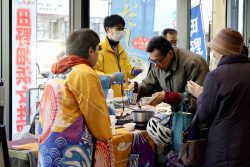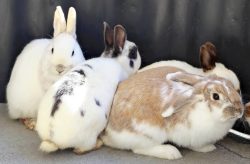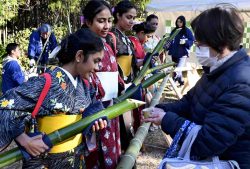Lost Traditional Song Revived at Sendai Festival; Piece Said to Originate in Shouts of Workers Hauling Lumber
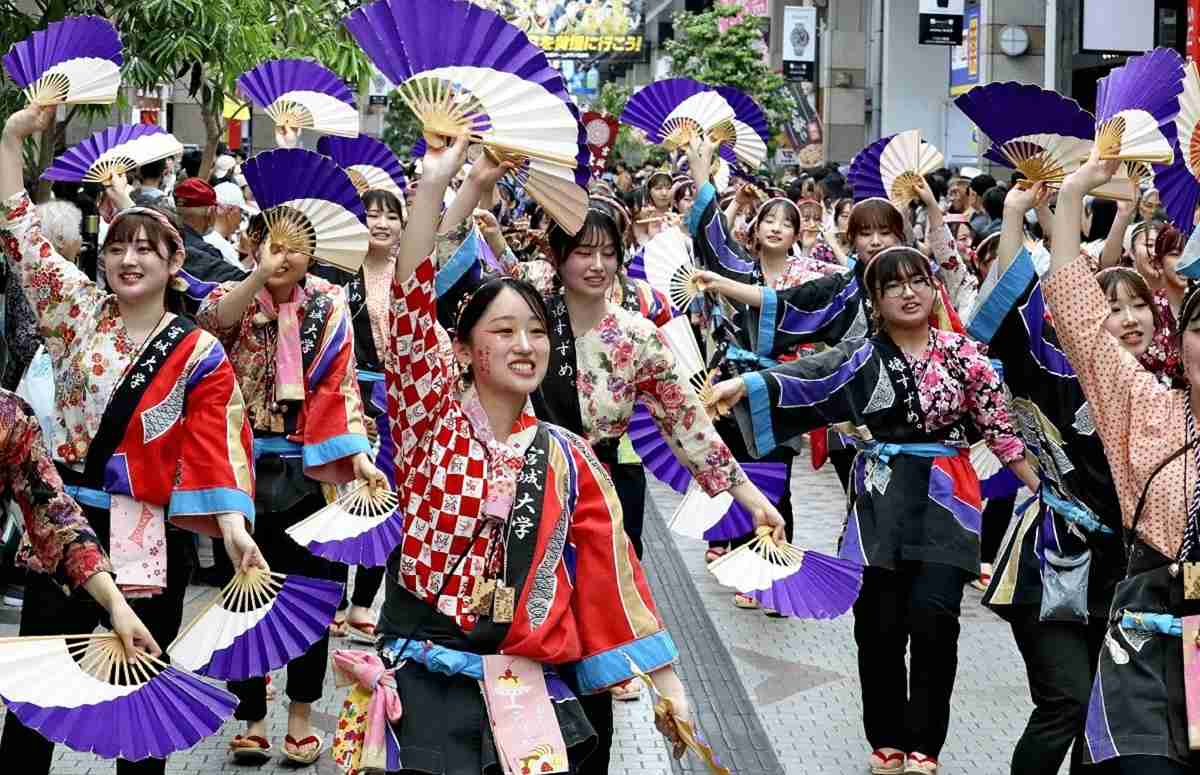
Dancers in colorful happi coats perform on a shopping street in Aoba Ward, Sendai, on May 18.
17:36 JST, June 12, 2024
SENDAI — A traditional song forgotten for 69 years was revived at an annual festival in Sendai last month.
The “Sendai Matsuri Kiyari Ondo” song was created by the Sendai clan in the Edo period (1603-1867) and was performed for the first time since 1955. The performance took place at the two-day Sendai Aoba Festival, which marks the arrival of summer.
Around 10 a.m. on May 18, just before the festival’s opening ceremony, about 30 men in purple and dark-blue happi coats appeared on a stage set up at Kotodai Park in the city’s Aoba Ward. In the last part of the song, a singer called the “kiyari-shi” waved a shakujo Buddhist-monk stick and gave a stirring rendition of lyrics evoking the city of Sendai. The other men followed with a throaty chorus of “Iyasore wa yoho-hoi.”
The song was performed by the Date Kiyari-kai group, which is comprised of members of an association that organizes the festival. They met once a week in their spare time to prepare for the performance, transcribing the song and practicing singing in unison.
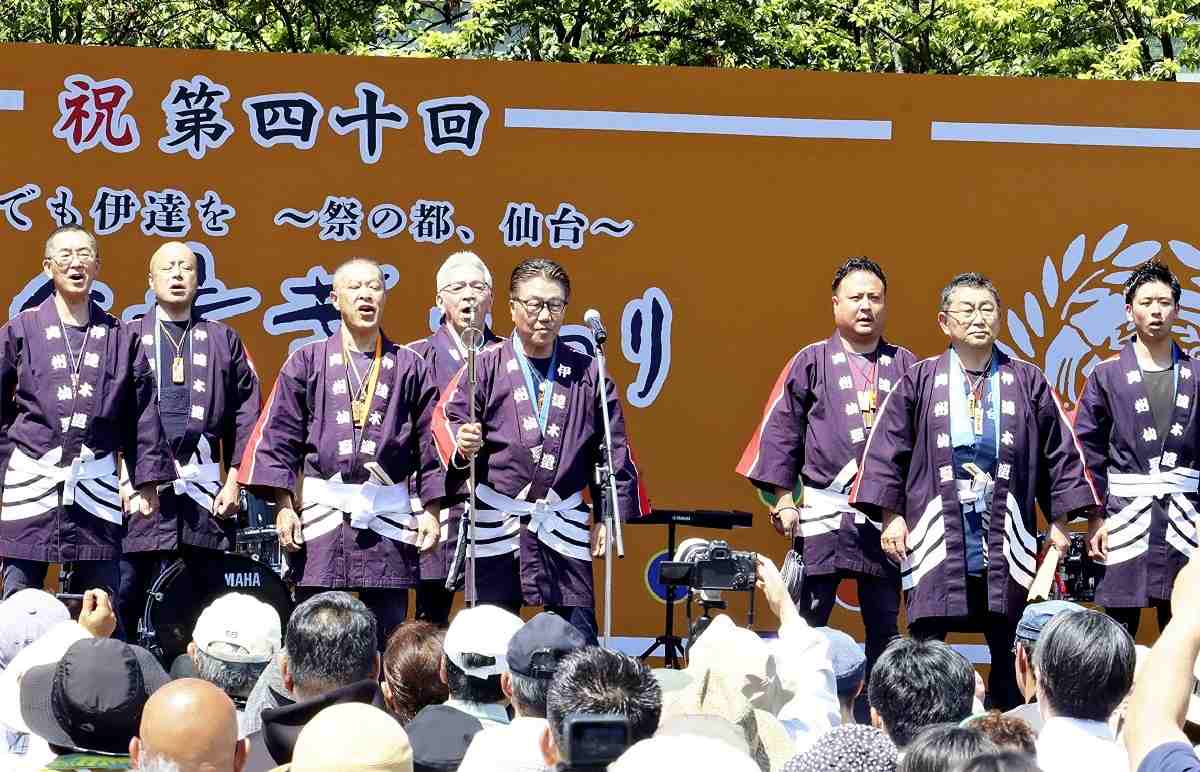
Members of the Date Kiyari-kai group perform the “Sendai Matsuri Kiyari Ondo” song, the first such performance in 69 years, in Aoba Ward, Sendai, on May 18.
The piece is one of the kiyari work songs that are said to have originated from the shouts of workers as they transported lumber from the mountains. According to the organizing group, the song was performed in the Edo period at the Sendai Festival, the predecessor to the Aoba Festival, and sung at annual festivals of the ward’s Aoba Shrine in the Meiji era (1868-1912).
However, it became harder to hold the festival after World War II due to an increase in traffic, and fewer people sang the song with the spread of Western culture. For these reasons, performances of the song gradually died out, according to the association.
About two years ago, the association learned from a book on the history of Sendai that there was a recording of the song. It tried to revive the piece by talking to people familiar with it and examining relevant documents.
After the first public performance of the song in 69 years, Kiyohide Sugawara, 67, the Date Kiyari-kai group’s vice president, scored the performance a little strictly at 50 or 60 out of 100.
Even so, he said, “We believe we’re supporting the culture of Sendai. We’re proud that we revived the song.” And looking satisfied, he gave a big nod of his head.
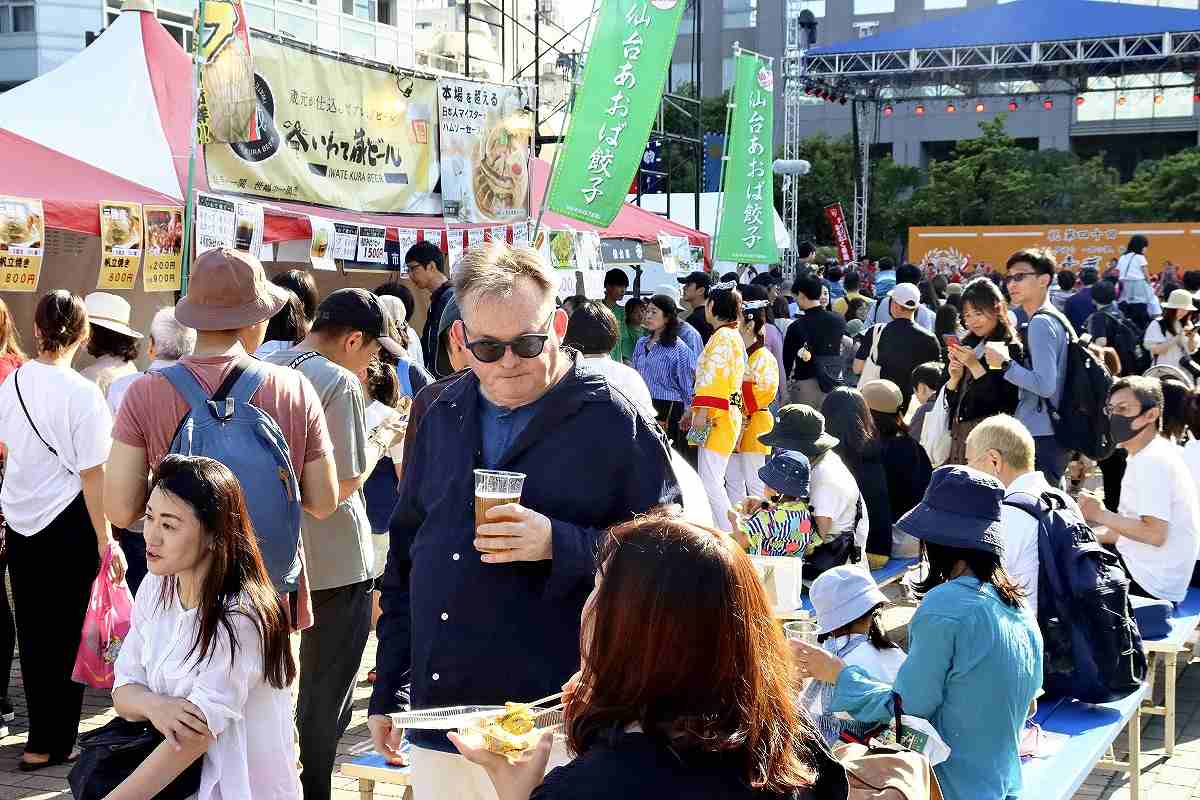
Residents enjoy the Sendai Aoba Festival in Aoba Ward, Sendai, on May 18.
Top Articles in Features
-

Sapporo Snow Festival Opens with 210 Snow and Ice Sculptures at 3 Venues in Hokkaido, Features Huge Dogu
-

Tokyo’s New Record-Breaking Fountain Named ‘Tokyo Aqua Symphony’
-

Tourists Flock to Ice Dome Lodge at Resort in Hokkaido, Japan; Facility Invites Visitors to Sleep on Beds Made of Ice
-

High-Hydration Bread on the Rise, Seeing Increase in Specialty Shops, Recipe Searches
-

Heirs to Kyoto Talent: Craftsman Works to Keep Tradition of ‘Kinran’ Brocade Alive Through Initiatives, New Creations
JN ACCESS RANKING
-

Japan PM Takaichi’s Cabinet Resigns en Masse
-

Japan Institute to Use Domestic Commercial Optical Lattice Clock to Set Japan Standard Time
-

Israeli Ambassador to Japan Speaks about Japan’s Role in the Reconstruction of Gaza
-

Man Infected with Measles Reportedly Dined at Restaurant in Tokyo Station
-

Man Infected with Measles May Have Come in Contact with Many People in Tokyo, Went to Store, Restaurant Around When Symptoms Emerged


